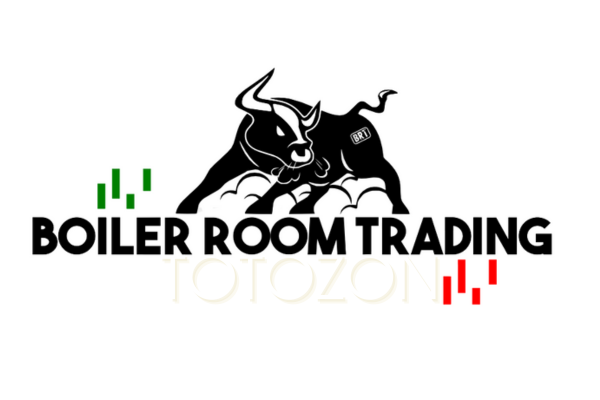Boiler Room Trading
$149.00 Original price was: $149.00.$15.00Current price is: $15.00.
File Size: Coming soon!
Delivery Time: 1–12 hours
Media Type: Online Course
Boiler Room Trading: Protect Yourself from Scams
Boiler room trading conjures images of high-pressure sales tactics and shady practices. While this term might sound dubious, understanding its history and implications can provide valuable insights into the world of financial trading. In this article, we explore the concept of boiler room trading, its key characteristics, and how to avoid falling prey to such schemes.
What is Boiler Room Trading?
Definition and Origins
Boiler room trading refers to the aggressive selling of securities by unscrupulous brokers who use high-pressure tactics to convince unsuspecting investors to purchase often worthless or overvalued stocks. The term “boiler room” originates from the cramped, high-pressure environments where these brokers operated, similar to a ship’s boiler room.
Historical Context
Boiler room trading gained notoriety in the 1980s and 1990s, with movies like “Wall Street” and “Boiler Room” dramatizing these operations. These firms often targeted inexperienced investors with promises of high returns.
Key Characteristics of Boiler Room Trading
High-Pressure Sales Tactics
Boiler room brokers use aggressive and manipulative tactics to push investors into making quick decisions. They may call repeatedly and use scare tactics to create a sense of urgency.
Unregistered Securities
The stocks sold in boiler rooms are often unregistered and not listed on major exchanges. These securities are typically penny stocks, which are highly speculative and risky.
Misleading Information
Brokers in boiler rooms frequently provide false or misleading information about the stocks they are selling. They may exaggerate the potential returns and downplay the risks involved.
Cold Calling
Cold calling is a common method used by boiler room brokers. They obtain lists of potential investors and make unsolicited calls to pitch their stock offerings.
How Boiler Room Trading Works
Identifying Targets
Boiler rooms often target inexperienced investors who are less likely to recognize the red flags. They use marketing lists, social media, and other means to find potential victims.
Creating Hype
The brokers create hype around a stock by making exaggerated claims about its potential. They may use fabricated news, fake testimonials, and other deceptive tactics to build excitement.
The Hard Sell
Once an investor shows interest, the brokers employ high-pressure tactics to close the sale quickly. They might insist that the opportunity is time-sensitive and urge the investor to act immediately.
Dumping the Stock
After convincing enough investors to buy the stock, the brokers sell their shares at a profit, causing the stock price to plummet. This leaves the investors with worthless or severely devalued shares.
Risks and Consequences
Financial Loss
Investors who fall victim to boiler room schemes can suffer significant financial losses. The stocks sold are often worthless, resulting in a total loss of the invested capital.
Legal Issues
Participating in boiler room operations, even unknowingly, can lead to legal consequences. Regulatory bodies like the SEC actively pursue and prosecute those involved in such schemes.
Damage to Reputation
For brokers and firms, involvement in boiler room trading can lead to irreparable damage to their reputation. This can result in the loss of licenses, fines, and being barred from the industry.
How to Protect Yourself
Do Your Research
Before investing in any stock, conduct thorough research. Verify the legitimacy of the stock, the company, and the broker. Use reliable sources and consult financial advisors if needed.
Beware of High-Pressure Tactics
Be cautious of brokers who use high-pressure tactics. Legitimate brokers will not pressure you to make quick decisions. Take your time to evaluate the investment opportunity.
Check Registration and Licensing
Ensure that the broker and the securities are registered with appropriate regulatory bodies. The SEC and FINRA provide tools to verify the registration status of brokers and firms.
Be Skeptical of Unsolicited Calls
If you receive unsolicited calls promoting investment opportunities, be skeptical. Cold calling is a common tactic used by boiler rooms. Do not provide personal information or make investments based on such calls.
Legitimate Trading Alternatives
Registered Brokers and Firms
Work with registered brokers and established firms that adhere to regulatory standards. They provide transparency and accountability, reducing the risk of fraud.
Diversified Investment Portfolios
Diversify your investment portfolio to spread risk. Invest in a mix of stocks, bonds, and other assets to mitigate the impact of any single investment’s poor performance.
Use Reputable Platforms
Utilize reputable trading platforms that offer robust security measures and transparent practices. These platforms provide tools and resources to help you make informed decisions.
The Role of Regulators
SEC and FINRA
The Securities and Exchange Commission (SEC) and the Financial Industry Regulatory Authority (FINRA) play crucial roles in regulating and monitoring the securities industry. They enforce laws and regulations to protect investors.
Reporting Fraud
If you suspect boiler room activity, report it to the SEC or FINRA. These organizations have mechanisms in place to investigate and take action against fraudulent activities.
Conclusion
Boiler room trading represents one of the darker aspects of the financial industry. By understanding how these schemes operate and recognizing the red flags, investors can protect themselves from falling victim to such fraud. Staying informed, conducting thorough research, and working with reputable brokers are key steps in safeguarding your investments.

Commonly Asked Questions:
- Business Model Innovation: Accept the truth of a legitimate business! Our strategy is organising a group buy in which participants share the costs. We use these cash to acquire popular courses from sale pages and make them available to people with limited financial resources. Despite the authors’ worries, our clients love the cost and accessibility we give.
- The Legal Environment: Yes or No The legality of our activity is ambiguous. While we don’t have specific permission from the course authors to resell the material, there is a technicality at work. The author did not specify any limits on resale when purchasing the course. This legal intricacy is both an opportunity for us and a boon for individuals looking for low-cost access.
- Quality Control: Uncovering the Truth
Getting to the heart of the issue – quality. Purchasing the course straight from the sale page guarantees that all documents and resources are the same as those obtained through traditional channels.
However, we distinguish ourselves by going beyond personal research and resale. It is crucial to note that we are not the official course providers, which means that the following premium services are not included in our package:
- There are no scheduled coaching calls or sessions with the author.
- Access to the author’s private Facebook group or web portal is not permitted.
- No access to the author’s private membership forum.
- There is no direct email support available from the author or their team.
We operate independently, with the goal of bridging the pricing gap without the extra services provided by official course channels. Your comprehension of our distinct approach is much appreciated.
Be the first to review “Boiler Room Trading” Cancel reply
You must be logged in to post a review.
Related products
Forex Trading
Forex Trading
Forex Trading
Forex Trading
Forex Trading
Forex Trading
Forex Trading
Forex Trading
Forex Trading
Forex Trading

 The Trading Blueprint with Brad Goh - The Trading Geek
The Trading Blueprint with Brad Goh - The Trading Geek  How To Read The Market Professionally with TradeSmart
How To Read The Market Professionally with TradeSmart 


















Reviews
There are no reviews yet.